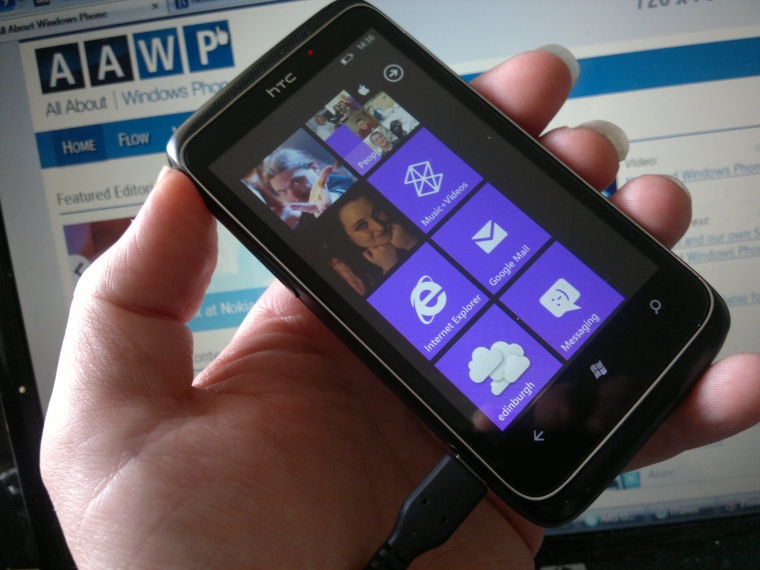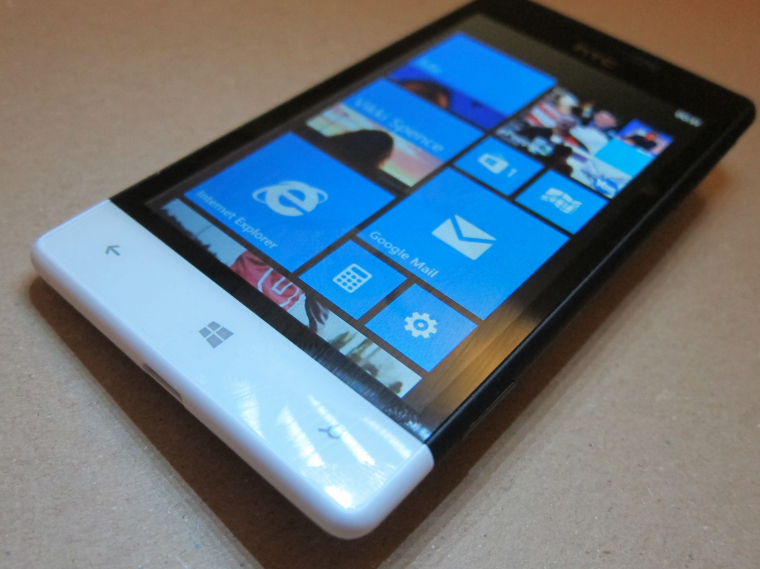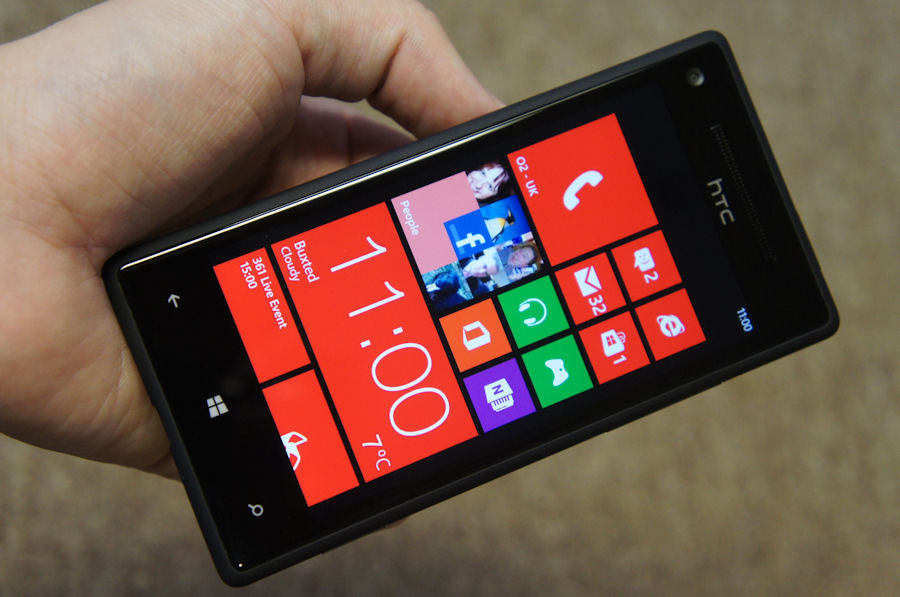Nokia is pretty confident in their line-up of Windows Phone handsets, and its a fair bet that future releases are not only mapped out, but you can probably make a fair guess as to what will happen, based on the existing evidence.
While Samsung might be the diminished partner in the 'A class' Windows Phone partners, they are busy with the Galaxy range of smartphones, and are working on a strategy that puts a handset with the brand name 'Galaxy' at every point in the price range. Their Windows Phone handsets are nice, but I always feel they are a side project, just to ensure it has competency on the platform. Any retail sales of the ATIV S and similar handsets are a bonus.
So what about HTC? It may have come out with the HTC 8X and 8S Windows Phones that were given the moniker of 'signature' Windows Phone 8 devices; it may have the stylish and specced out HTC One over on Android, but their path forward in the world of Windows Phone seems unclear.
HTC can read the market share numbers just as well as anyone else can, and must know that its two-handset approach to Windows Phone 8 (a high end and a mid-range handset) has not delivered the results shareholders would have hoped for. Nokia has pushed ahead and grabbed the lion's share of the Windows Phone market, Samsung are sneaking ahead of HTC in the market with some analysts putting Samsung's WP sales ahead of HTC's in the last quarter, and both Huawei and ZTE are lurking in the wings. It would be a brave man who wants to be in HTC's position today.

A strong start to their Windows Phone handsets: The HTC Trophy
So what is HTC to do with Windows Phone going into the back half of 2013?
This is presuming that HTC will carry on with Windows Phone. I hope they do, and if they step back, the current situation offers them a chance to do something really special with the platform.
HTC does not have the volume or capability to release a huge number of models of smartphone that can cover a number of points in the pricing range for the networks. In any case, this would be simply aping Nokia's strategy without the economy of scale and distribution that Nokia has established. So if the Finns are going to zig, the Taiwanese should zag.
HTC has already tried the 'broad' approach with the HTC 8X's high specs looking to attract as many people as possible to an all-singing and all-dancing handset. Unfortunately with two 'super' handsets at the launch of Windows Phone, the majority went for the Nokia 920, rather than the HTC 8X. Nokia's momentum allowed them to build on that, while HTC's follow up, the (somewhat crippled) 8S, while initially doing very well in the pay as you go and lower range markets, has stumbled and fallen out of the public eye.

A nice idea, great form factor, but crippled by just 4GB of storage: The HTC 8S
But this leaves HTC with a very interesting opportunity. Nokia are now the 'horizontal' players in the Windows Phone ecosystem (matching Samsung in Android), providing everyone with a baseline across the range. There's no point in HTC trying to do the same thing. What they should do is switch to a vertical model, by designing and building a handset for a specific function, and market it like crazy.
Does that leave some of the Windows Phone fans out in the cold? More than likely. Would it mean that the Windows Phone users targeted by this specialist device become insanely eager cheerleaders for the phone, and ergo for HTC? More than likely.
HTC should choose an area where they can clearly make a difference in how people use their smartphones. This could be paired up with some new hardware innovations (see my editorial from Monday for some ideas in that area), or HTC could simply take everything that it is out there and mix it all with passion and focus to create a handset that has a specific goal or problem to solve.
With the Beats branding, HTC started to move down this route previously, but I would like to see a handset that delivers itself up as a true audiophile phone - with a focus on excellent audio reproduction, maximising the signal from the handset going to the headphones, external stereo speakers, the equivalent of Nokia's HAAC microphones, perhaps even backed up with a music store providing lossless audio formats or very high quality MP3 files? Bundling in an Xbox Live music pass, or the equivalent from a service such as Spotify would also help.
If you want to focus on the best music experience possible, you have a classic device that should attract its own audience with some helpful PR to nudge them towards the handset. That's one potential 'vertical' HTC could build on. The love of BlackBerry and a device specifically for enterprise might not be sexy, but it's an area where older BlackBerry devices still rule - the BB10 devices are not cutting it. One of Microsoft's strengths is in the enterprise market - if HTC could craft and build an enterprise class device [what about an updated '7 pro' with a physical keyboard? - Steve] with nothing flowery aimed at a retail experience, it could have another vertically designed device that will not get the plaudits, but will bring in the punters.

What comes after the HTC 8X Windows Phone?
While the numbers are not pretty, HTC is not down and out. With some careful thought and strategy, HTC can create a great new handset for 2013, build up more credibility around their handsets, and get themselves back into the smartphone game. If it has the strength of character to realise what is needed in their current situation.
